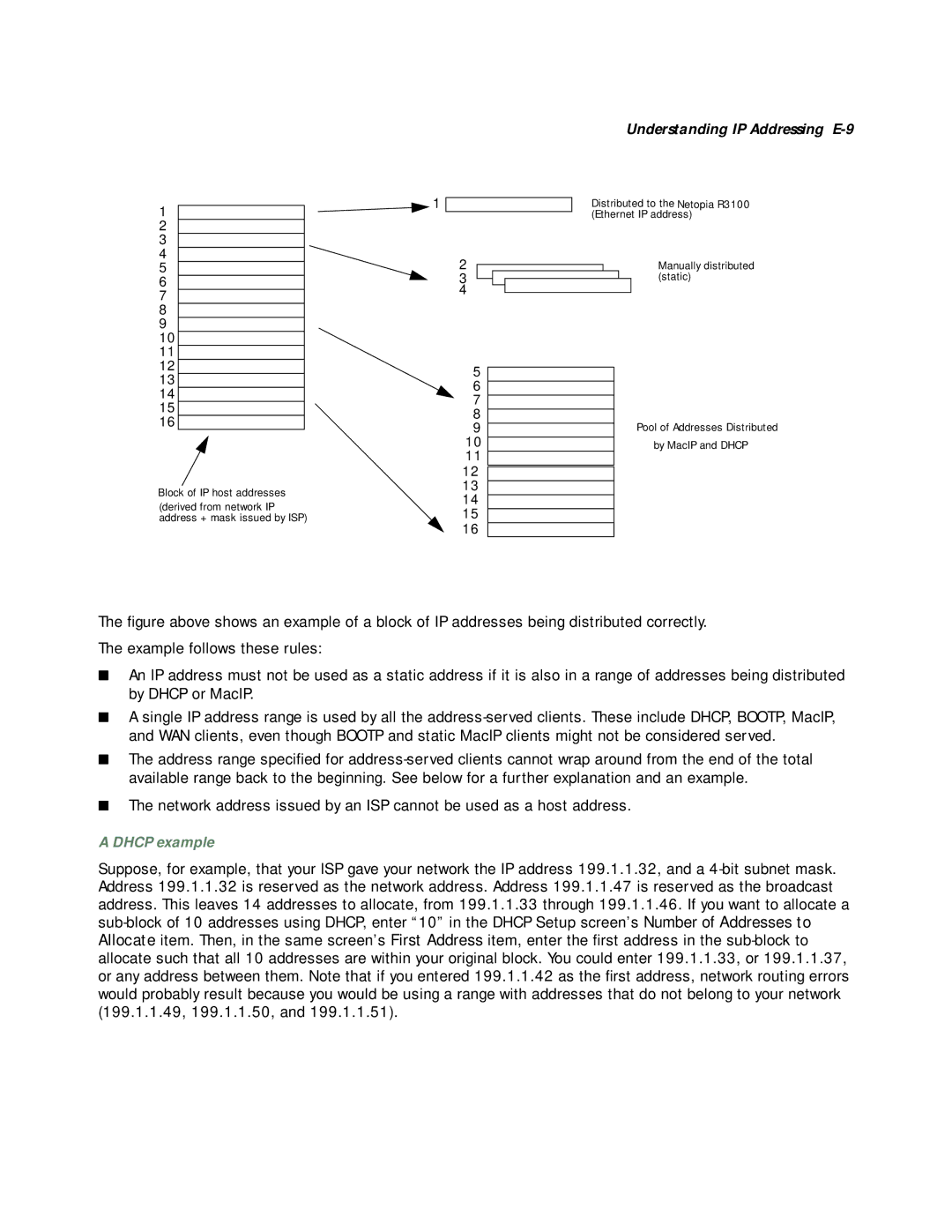
1
2
3
4
5
6
7
8
9
10 ![]()
11 ![]()
12 ![]()
13 ![]()
14 ![]()
15 ![]()
16 ![]()
Block of IP host addresses
(derived from network IP address + mask issued by ISP)
Understanding IP Addressing E-9
1 |
|
|
|
|
| Distributed to the Netopia R3100 | |||||
|
|
|
|
|
| (Ethernet IP address) | |||||
2 |
|
|
|
| |||||||
|
|
|
|
|
|
|
|
| Manually distributed | ||
3 |
|
|
|
|
|
|
|
|
| (static) | |
4 |
|
|
|
|
|
|
|
|
|
| |
|
|
|
|
|
|
|
|
|
| ||
5 |
|
|
|
|
|
|
|
|
| ||
|
|
|
|
|
|
|
|
| |||
6 |
|
|
|
|
|
|
|
|
| ||
7 |
|
|
|
|
|
|
|
|
| ||
8 |
|
|
|
|
|
|
|
|
| ||
9 |
|
|
|
|
|
|
|
| Pool of Addresses Distributed | ||
10 |
|
|
|
|
|
|
|
| by MacIP and DHCP | ||
11 |
|
|
|
|
|
|
|
|
| ||
12
13
14
15
16
The figure above shows an example of a block of IP addresses being distributed correctly.
The example follows these rules:
■An IP address must not be used as a static address if it is also in a range of addresses being distributed by DHCP or MacIP.
■A single IP address range is used by all the
■The address range specified for
■The network address issued by an ISP cannot be used as a host address.
A DHCP example
Suppose, for example, that your ISP gave your network the IP address 199.1.1.32, and a
